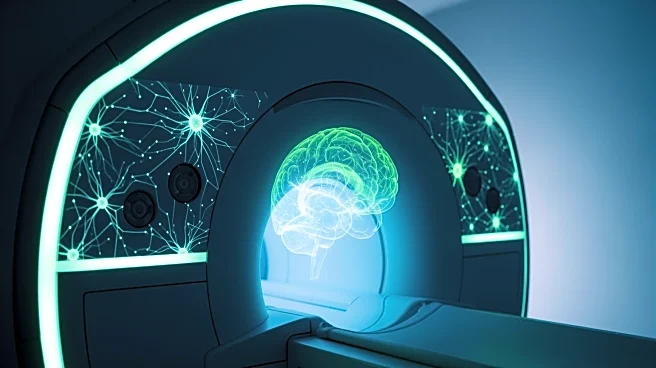What's Happening?
A study conducted by The Hospital for Sick Children and Stanford University has developed multiclass machine learning models to identify molecular subtypes of pediatric low-grade glioma using MRIs. The research
utilized a semi-automated approach for segmenting volumes of interest (VOIs) in FLAIR images, which demonstrated improved reproducibility and robustness compared to manual methods. The study involved data from electronic health records spanning several years and included patients aged 0-18 with confirmed molecular status of gliomas. The machine learning pipeline primarily used random forests for classification, comparing its performance with other algorithms like XGBoost and CatBoost. The models were evaluated using a nested Monte Carlo cross-validation framework, focusing on classification performance and computational efficiency.
Why It's Important?
This development is significant for precision medicine, particularly in pediatric oncology, as it offers a more reliable method for identifying glioma subtypes, which can inform treatment decisions. The use of machine learning models in medical imaging enhances diagnostic accuracy and potentially improves patient outcomes by enabling tailored therapies. The study's approach to data segmentation and feature extraction could set a precedent for future research in radiomics, promoting reproducibility and accessibility in medical imaging analysis. The findings may lead to advancements in non-invasive diagnostic techniques, reducing the need for invasive procedures in young patients.
What's Next?
The study suggests further exploration into the integration of clinical and radiomics data to enhance model performance. Future research may focus on expanding the dataset to include more diverse patient populations and exploring additional machine learning algorithms for improved classification accuracy. The potential for these models to be applied in other types of tumors or conditions could be investigated, broadening the impact of this research in the field of medical diagnostics.
Beyond the Headlines
The ethical implications of using machine learning in healthcare, particularly concerning data privacy and consent, are noteworthy. As these technologies become more prevalent, ensuring patient data security and addressing potential biases in algorithmic decision-making will be crucial. The study's retrospective design and waiver of informed consent highlight the need for ongoing discussions about ethical standards in medical research.










